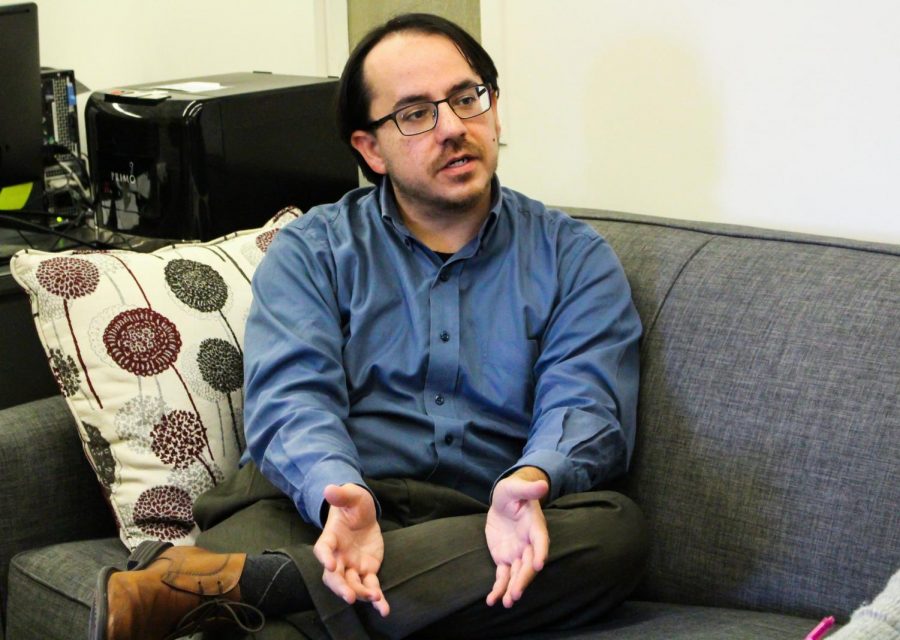Study found arrests did not increase for sales, possession of cannabis

ARIELLE ARGEL
Dr.
Dale Willits, WSU assistant professor of criminal justice and
criminology, says how marijuana has not had a major effect on crime
rates on Friday afternoon at Johnson Tower. They have conducted research
using focus groups and interviews with law enforcement officials.
Dale Willits, WSU assistant professor of criminal justice and criminology, said the research was done to find if there is a connection between crime and the legalization of recreational use of marijuana in Washington and Colorado.
Arrest numbers for selling and possession of marijuana have not increased, but calls pertaining marijuana have gone up, he said. Citizens can call the police if they have a bad experience with a certain batch of marijuana, Willits said. People 20 years ago were not able to call without the fear of getting in trouble for doing it illegally.
He said the idea of the study is to help guide the conversation without a bias perspective of whether marijuana is legalized.
Mary Stohr, WSU professor of criminal justice and criminology, said the research team received about a $1 million grant from the National Institute of Justice in 2017 to conduct the study over a three-year period.
Willits said researchers analyzed “index crimes,” which are homicide, rape, theft and arson.
The parameters of the crimes investigated were given to researchers by the FBI.
They also conducted 149 interviews with law enforcement officers across Washington and Idaho, Willits said.
“We know that with index crimes, for the last two years post retail sales of marijuana in Washington and Colorado, it doesn’t appear that crime has consistently gone up or down,” Stohr said.
Researchers hypothesized that the relationship between crime rates and marijuana use is the same for people who used the drug when it was illegal as for those who use it now that it is legal, according to the study.
Willits said focus groups consisted of five to 10 law enforcement officers in a group. The focus groups were aimed to create conversation amongst them about what they thought would happen with the legalization of marijuana.
Officers were invited back for one-on-one interviews to go more into depth about legalization, he said. Many officers said they did not expect to see a big increase in crime.
Stohr said they hope the study can be extended an additional five months to investigate how the legalization of marijuana has affected police enforcement.
Willits said they want to use the extension to study how much more time the police spend on handling marijuana cases than they have in the past.
They hope the study can be used by other states as a resource when discussing the legalization of marijuana, he said.
“When we finish this report, other states that are thinking about legalizing will have a sense of what they should and shouldn’t expect,” Willits said. “They can make changes and improve on the Washington model.”

No comments:
Post a Comment